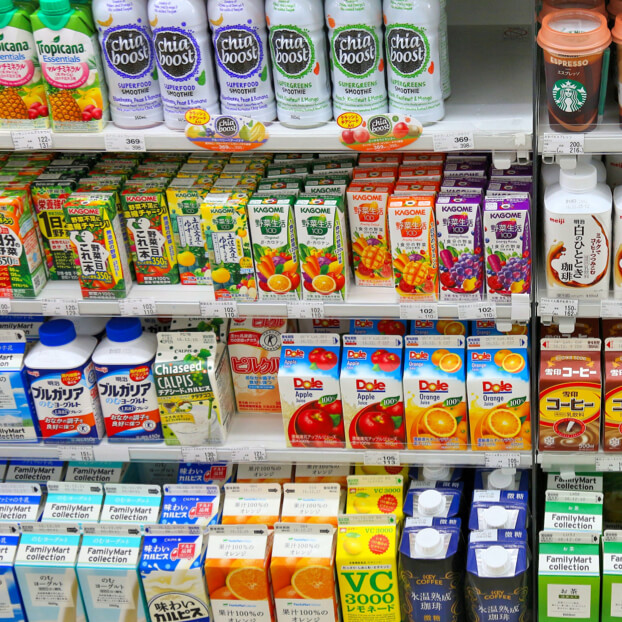Consumer Products
Finding The Right Fast Moving Consumer Goods Private Label Products
Is your business thinking about selling consumer goods under its name? Or is it considering adding more products to the existing line-up? Then private label products could be ideal for your needs.
Private labeling allows you to outsource all of your supply chain’s sourcing, manufacturing, importing, and shipping elements. It also gives you access without any need to build a network of your own to the entire supply chain. Yet, knowing how private labeling works and its pros and cons is essential.
Here, we take a closer look at whether private label consumer goods are a good choice for your business. We also look at how to find the right FMCG (Fast Moving Consumer Goods) to meet your needs.
How Does Private Labelling Work?
Private label goods mean that the brand is only applied to packaging at the time of sale. They represent an excellent way for companies to sell goods they cannot manufacture themselves.
Essentially, private label products are made by one business and are branded and sold by another. Companies selling private label products want products to sell under their name as if they made it themselves.
White labeling and private labeling are similar. However, white labeling involves taking another business’s product and putting your brand on it. This means you’re selling directly a product that has been developed, serviced, and controlled by a third party. On the other hand, private labeling involves contracting with the manufacturer to make the product to your own specifications.
Who Produces “No Name” Grocery Products?
One example of a well-known line of private label products is the “No Name” range. This range is sold in Canada by Loblaw Companies Ltd, the biggest food retailer in the country. The products can be purchased in various stores owned by this retailer, including No Frills, Super-Valu, and Loblaws.
While Loblaw Companies Ltd sells these goods, they don’t manufacture them themselves. Hundreds of manufacturers actually produce those products.
Some of these manufacturers are specialists in producing store brand label goods. One of those manufacturers is Cott Beverages which makes the No Name soda and pop.
The other manufacturers are the same companies that make brand-name versions of identical products.
What Are the Pros and Cons of Private Label Products?
As with everything, there are pros and cons to private label products.
The Pros:
- Getting an edge over your competition.
- Gaining more control over prices.
- Getting brand-driven benefits.
- A wide choice of suppliers, including specialists in their industry.
- Low costs of manufacturing with higher profit margins.
- Scalable business models.
Private labeling enables companies to market their products independently. It also allows products to be priced based on the company’s marketing strategy. Furthermore, private labeling allows a brand to be built with no need to invest extensively in infrastructure.
There are some downsides, however. These include:
The Cons:
- Lack of control over the quality of products.
- The possibility of unknowingly sourcing products from an unethical business.
- Constraints on inventory control and procurement.
- Tough competition in the market.
- Potentially lower-perceived product quality by customers.
- High minimum order requirements.
Even though the company doesn’t manufacture the item itself, any product quality issues are its problem. Customers will complain about the product, and the company must compensate even though the quality lapse wasn’t its fault.
This also holds true if products are unknowingly sourced from an unethical business. Customers will hold the company liable for the supplier’s actions, which could result in setbacks and boycotts.
Although using private label products reduces many production-related issues, inventory control and procurement costs must still be managed. Avoiding over-purchasing and underselling of the stock is still a potential challenge.


Tough competition also exists for private label products, which can become a significant driver in pricing goods.
What Are the Most Successful White Label Products?
If you’re considering selling private label products, you need to know the best FMCGs to stock. Some successful options include:
- Accessories and apparel
- Skincare and cosmetics
- Groceries
- Haircare products
- Supplements
Clothing is one of the top markets for private labeling. Today, the average wardrobe has over a hundred different fashion items in it. Some of the most commonly searched-for items include sportswear and maternity wear. These represent a reliable choice of FMCG.
Skincare is another multi-billion-dollar industry. Natural and vegan products are trendy at the moment. Private label cruelty-free makeup, organic sunscreens, natural deodorants, and anti-aging products are all excellent choices.
Packaged food is another example of a fast-moving consumer product because health-conscious consumers are actively seeking out non-GMO, gluten-free, organic, and vegan goods. Specialist dietary products are also a good choice for private labeling. Keto snacks, for example, are proving popular with purchasers.
Furthermore, the haircare market is enormous and varied due to the differing hair needs of every consumer. Popular products include beard oils, hair masks, hair growth shampoos, and even hair growth vitamins. This brings us to another popular private label category – supplements.
Supplements are taken for a wide range of reasons and purposes. This is a very varied market, from protein powders and detox teas to testosterone boosters and fertility supplements. It makes it an ideal choice for private labeling.
There are many other categories of private label products that also sell well. Consumer electronics, home and office supplies, and fragrances are just three more options to consider.
Finding A Manufacturer
Once you’ve decided on the suitable fast-moving consumer goods for your needs, you need to find the proper manufacturer. Making sure that you’ve researched thoroughly is vital. To create a suitable proposal for your private label brands, you need to know your target audience’s purchasing patterns. You also need to be sure you’ve chosen a manufacturer that offers competitive prices, reliable delivery, and high-quality products.
As you can see, private labeling presents several advantages for businesses. When done correctly, it can be a very profitable course of action to take.


